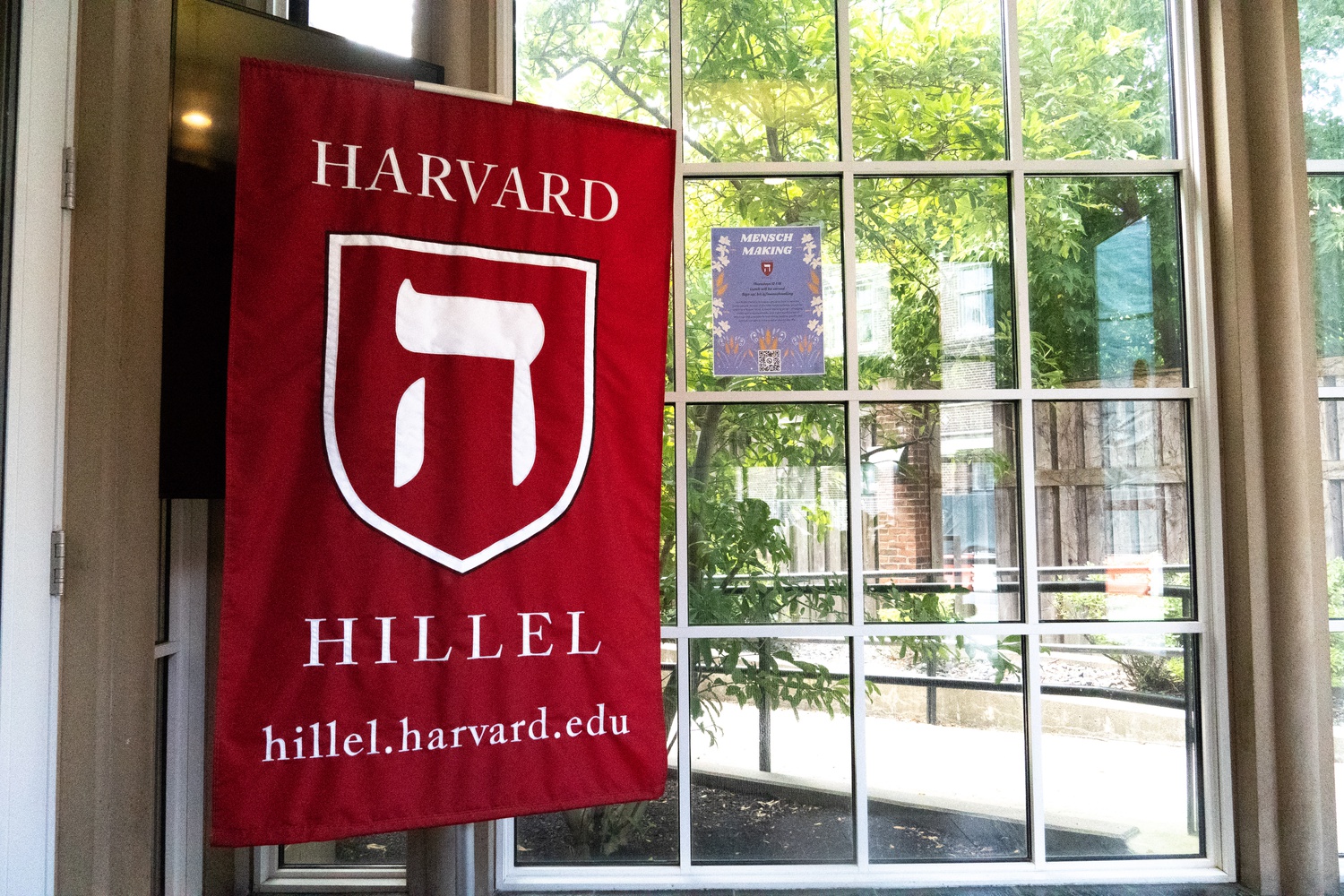
This op-ed is part of a special opinion package, “Antisemitism at Harvard, According to Seven Jewish Affiliates.” View the full package here.
For eighteen years I had the great privilege of working as Executive Director of Harvard Hillel.
As a leader of Jewish communities on campus, in New England, and around the nation, I have helped cultivate a new generation of Jewish leaders and citizens. I navigated moments of tension and war: the tumultuous 1990s, as the Oslo Accords began to crumble; the Second Intifada; 9/11 and its fallout; the Iraq War; Israel’s Second Lebanon War and its war on Gaza in late 2008.
During my long career as a Jewish educator and leader — including thirteen years living in Jerusalem — I have seen and lived through my community’s struggles. Now, as an elder leader, with the benefit of hindsight, I feel compelled to speak to what I see as a disturbing trend gripping our campus, and many others: The cynical weaponization of antisemitism by powerful forces who seek to intimidate and ultimately silence legitimate criticism of Israel and of American policy on Israel.
In most cases, it takes the form of bullying pro-Palestine organizers. In others, these campaigns persecute anyone who simply doesn’t show due deference to the bullies.
The recent effort to smear our new University President, Claudine Gay, is a case in point. I applaud the decision by the Harvard Corporation to stand by Dr. Gay amid the ludicrous charges that she somehow supports genocide against Jews, and I hope Harvard will continue to take a clear and strong stance against any further efforts by these powerful parties to meddle in university affairs, especially over personnel decisions.
The toppling of the president of the University of Pennsylvania is a sobering example of what can happen when we empower these unscrupulous forces to dictate our path as university leaders. The stakes are as high as they’ve ever been. Our vigilance must be up to the task.
As a leader in the Jewish community, I am particularly alarmed by today’s McCarthyist tactic of manufacturing an antisemitism scare, which, in effect, turns the very real issue of Jewish safety into a pawn in a cynical political game to cover for Israel’s deeply unpopular policies with regard to Palestine. (A recent poll found that 66 percent of all U.S. voters and 80 percent of Democratic voters desire an end to Israel’s current war, for instance.)
What makes this trend particularly disturbing is the power differential: Billionaire donors and the politically-connected, non-Jews and Jews alike on one side, targeting disproportionately people of vulnerable populations on the other, including students, untenured faculty, persons of color, Muslims, and, especially, Palestinian activists.
Let me speak directly to Jewish students at Harvard.
I know that it’s alienating and hurtful to so many of you when campus Jewish organizations, like Hillel and Chabad, take positions that exclude your voices. To those students, I say: The Jewish tradition is much deeper than any organization. No one has a monopoly on Judaism.
Continue to learn Torah, Jewish history, and our ethical traditions. Continue to draw from these sources — your sources — to find yourself, to build community, to build your own power, and even to build your own Jewish organizations.
Be boldly critical of Israel — not despite being Jewish, but because you are. There is no tradition more central to Judaism than prophetic truth-telling, no Jewish imperative more urgent than bravely criticizing corrupt leadership, starting with our own.
As someone who spent over forty years running programs in which Jews, often young people, were under my care, the safety of Jews has always been my highest priority — and, frankly, the thing that keeps me up at night. I have myself been the victim of antisemitism, including, on more than one occasion, serious violent attack.
I know what antisemitism looks like and I do not take the issue of violence against Jews lightly. I have monitored, with vigilance, the kinds of speech that Israel-aligned parties are calling “antisemitic,” and it simply does not pass the sniff test.
Let me speak plainly: It is not antisemitic to demand justice for all Palestinians living in their ancestral lands.
The activists who employ this language, and the politics of liberation, are sincere people; their cause is a legitimate and important movement dissenting against the brutal treatment of Palestinians that has been ongoing for 75 years. One can disagree with any part of what these activists say, but they must be allowed to speak safely and afforded the respect their morally serious position deserves. I have learned much by listening and carefully considering the positions of these activists.
If Israel’s cause is just, let it speak eloquently in its own defense. It is very telling that some of Israel’s own supporters instead go to extraordinary lengths to utterly silence the other side. Smearing one’s opponents is rarely a tactic employed by those confident that justice is on their side. If Israel’s case requires branding its critics antisemites, it is already conceding defeat.
Let me be clear: Antisemitism in the U.S. is a real and dangerous phenomenon, most pressingly from the alt-right white-supremacist politics that have become alarmingly mainstream since 2016. To contend against these and other antisemitic forces with clarity and purpose, we must put aside all fabricated and weaponized charges of “antisemitism” that serve to silence criticism of Israeli policy and its sponsors in the U.S.
As a Jewish leader, I say: Enough.
By Bernie Steinberg, Contributing Opinion Writer
Bernie Steinberg was the executive director of Harvard Hillel from 1993 to 2010.
